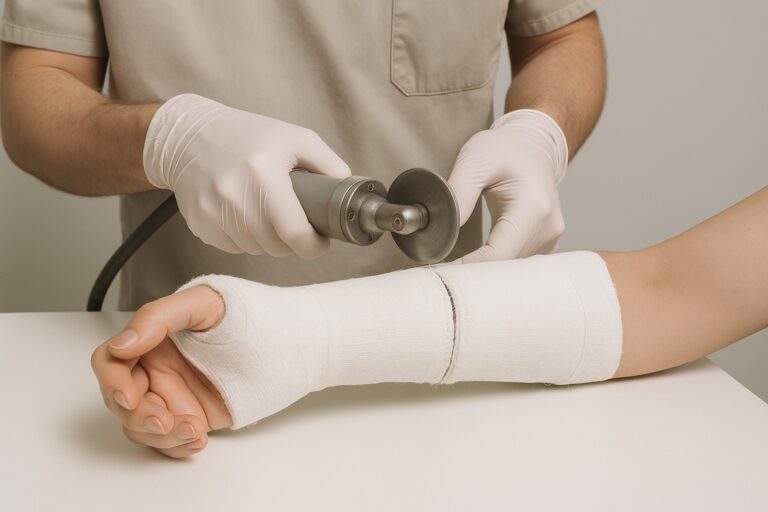Ever noticed how an old injury aches in the wintery weather? The idea that certain aches and pains correspond with, and can even predict the weather is widespread, and has been around since at least the days of ancient Greece. Hippocrates was the first to note the phenomenon, in about 400 B.C. Unfortunately over the past 2,400 years, researchers have not come up with a solid evidence-based explanation as to why this happens.
The current accepted explanation for bad-weather-related aches is that the drop in barometric pressure that comes with a storm allows soft tissue and fluid around joints to expand, irritating nerves and causing pain, especially at the sensitized site of an old injury.
To understand the effect of barometric pressure, imagine blowing up a balloon – there is inside air pushing out, and outside air pushing in. Atmospheric pressure is always pushing on our bodies in a similar way. If the pressure outside of the body drops, gasses inside the body can expand—particularly the gasses dissolved in the fluid surrounding joints and tendons. The expansion of fluid around the injured area might be microscopic, but it is enough to irritate nerve endings by putting additional pressure on them. The brain then interprets this as pain.
Self Management
Relief is possible. During weather changes, some people, particularly those with arthritis will need to increase their pain medication. The following steps may help too.
Stay warm. Dressing in layers, keeping the home heated, and warming up the car before getting in can help ease pain related to cold weather. Warming the bed with an electric blanket or warming clothes in the dryer before wearing can also help.
Apply a gentle heat (a hot water bottle or wheat bag) to your painful joints. Heat helps to let muscles relax, so it’s a soothing way of helping to reduce pain.
Try to prevent swelling. Warmth helps with joint pain, but does not necessarily help reduce swelling. For example, if bad weather aggravates arthritis in the hands, try wearing oedema gloves (available at our clinics) to minimise swelling. These gloves have been especially designed and manufactured to provide compression for the hand, wrist and fingers to control swelling
Keep moving. Before going outside during cold weather, try exercising painful joints to increase blood flow and move fluid around the joints to help reduce stiffness.
Oedema gloves can be purchased from
The Merivale Hand Clinic
208 Papanui Road


